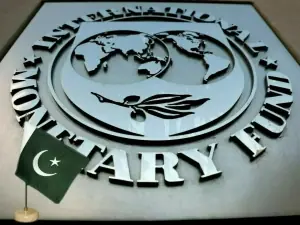Urea fertiliser: PM orders action against hoarders, profiteers
3 min readPrime Minister Imran Khan has directed the provincial governments to take action against hoarders and profiteers and those involved in smuggling of urea fertiliser, following complaints from various parts of the county.
The premier was chairing a review meeting on “priority sectors” – progress on implementation regarding Agricultural Transformation Plan and Special Economic Zones.
The meeting was also apprised regarding consumption of urea, the DAP and operation against hoarders as well as about the progress with regards to collaboration with the Chinese Academy of Agricultural Research for transfer of knowledge with the aim to introduce innovative agriculture techniques to improve yield and diversity.
The prime minister said that the present government is the "first one in Pakistan’s history" that developed a comprehensive agricultural transformation plan and now it is at its implementation stage.
The plan, he said envisages mechanisation of agriculture sector, provision of quality seed, efficient water management system, and assistance in livestock farming are transforming the sector into a high yielding economic entity.
The introduction of Kissan card, subsidy on fertiliser and genetic improvement of livestock, the government is aiming to achieve even higher yields as compared to the record yield in the previous year, he added.
The meeting was informed that for quality seed dissemination to increase the average yield and quality of the produce, relevant approvals have been taken and fund release is in process.
For genetic improvement of livestock, import of quality semen was proposed, the process is expedited and is given high priority.
In addition, to assist the livestock farmers, helpline 9211 was revived in Punjab, while it is nearly complete in the Khyber Pakhtunkhwa and Balochistan, while the project for mechanisation of farming is near its completion, whereby, distribution of machinery to the farmers will start soon.
This will help to not only increase the yield, but will also help cut the farming costs.
In addition to the above, the development of a comprehensive and well managed Information and Communication Technology system for agriculture sector, including extension services to assist farmers will also be launched in the first quarter of the coming year.
The meeting was also provided a comprehensive update about institutional reforms regarding research institutes, whereby, 65 percent of the proposed interventions have already been implemented with a special focus on cotton research institute.
Center of Excellence (CoE) regarding agricultural research are soon being launched in Punjab and other provinces with a focused approach on high yielding crops and the crops that will substantially reduce dependence on imports.
The meeting was given a detailed brief on olive cultivation, and was informed that import of high yielding plants for 20,000 acres has already commenced.
Regarding shrimp farming, the meeting was given an update about hatcheries that have been established and are soon to be operationalised in the Punjab and Balochistan.
On Special Economic Zones, the prime minister said that the government’s focus is to increase investment in the SEZs for establishment of export-oriented industries as focus on ease of doing businesses has started rendering positive results.
The meeting was given detailed presentations on the SEZs and the initiatives taken by the BOI, the CPEC Authority, and the relevant ministries to facilitate investors in obtaining NOCs and complying to various regimes both under the provincial and the federal governments.
The meeting was informed that four major SEZs, including Allama Iqbal Industrial City, Rashakai, Dhabeji, and Bostan are operational with an overall count of 21 SEZs of varying sizes.
A One Stop Shop model for investors has been prepared by the BOI to assist in the provision of basic amenities including electricity, gas, water, and construction permits.
A unified compliance regime has also been formulated for services under the provincial and the federal governments.
In addition, a proposal regarding the empowerment of management companies to obtain NOCs/permits on behalf of the investors was also given.
The story was originally published in Businiess Recorder on December 28 2021.
For the latest news, follow us on Twitter @Aaj_Urdu. We are also on Facebook, Instagram and YouTube.

























Comments are closed on this story.